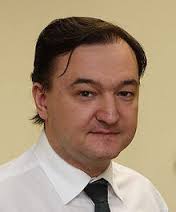 In a fresh twist to the Sergei Magnitsky tax scam case which soured US-Russia relations, French investigators have found a money trail leading to the glitzy resort of Saint Tropez, sources told AFP.
In a fresh twist to the Sergei Magnitsky tax scam case which soured US-Russia relations, French investigators have found a money trail leading to the glitzy resort of Saint Tropez, sources told AFP.
A 58-year-old woman with French and Russian citizenship living in the town has been charged with fraud and embezzlement linked to her luxury paint export business, according to a judicial source.
The woman enjoyed “a high-flying lifestyle” and allegedly played a role in a wider system for laundering Russian state funds through tax havens, another source close to the investigation said.
The leading role in the laundering was apparently played by an as yet unidentified woman named “Tatyana”, who took over the position from her brother after he was assassinated by associates.
An analysis of the accounts of the Saint Tropez woman’s paint company found transfers totalling more than 16 million euros from the British Virgin Islands and Belize between 2008 and 2013, sources said.
Two of the businesswoman’s accounts in Monaco and Luxembourg have been frozen, a source said.
– ‘Treasure trove’ –
The money is believed by investigators to be part of the $230 million (206-million euro) that late Moscow tax lawyer Sergei Magnitsky alleged was embezzled from the investment fund Hermitage Capital in 2007.
Magnitsky was himself arrested for tax evasion in 2008 and died in a Moscow prison in 2009 after failing to receive appropriate medical care.
The fund’s chief executive Bill Browder in 2012 persuaded US lawmakers to sanction officials allegedly linked to the case by banning them from the United States and freezing their assets, which infuriated Russia and dented Moscow’s relations with Washington.
Browder accuses Russian tax officials of carrying out the scam uncovered by Magnitsky using his firm but has himself been sentenced by a Moscow court in absentia to nine years in prison.
“We’ve been able to find 200 of the 230 million fanning out across many different countries,” Browder, who was expelled from Russia in 2005, told AFP in an interview in London.
“We’ve seen it going all over Europe: to the Baltics, to Cyprus, to Moldova. We’ve seen it going from those countries to the United States, France, Switzerland, Luxembourg,” Browder said.
Browder said he originally contacted French authorities about the case in September 2013 and has since testified several times although he declined to comment on the details of the probe.
“They opened an investigation and now there’s a major money laundering investigation into Russian organised crime and government corruption,” he said.
Browder said that a Moscow banker living in Britain, Alexander Perepilichny, proved particularly helpful in untangling the money laundering, revealing a series of Swiss bank records in July 2010.
“He provided us with a treasure trove of Swiss bank statements,” Browder said, adding that this led Switzerland to freeze $20 million in bank accounts.
In 2012, after returning from a few days’ stay in Paris, Perepilichny suddenly died at the age of 44 after going running near his villa in Surrey.
British police concluded that the death was not suspicious but media reports have cited a lawyer for his life insurance company saying that test results on his body found a chemical linked to a rare poison.
Known as “heartbreak grass”, the Gelsemium elegans plant grows only in Asia and high doses can cause paralysis of the spinal cord, a loss of muscular power and eventually death from asphyxia.
“Depending on when he was poisoned he might have actually been murdered in France,” Browder said.
A British inquest into the case is due to be held later this year.
– ‘They’d love to kill me’ –
Browder said his perseverance in a complex international campaign is his way of getting justice for Magnitsky, who he says was intentionally left to die because of the corruption he had exposed.
“A 37-year-old man who worked for me was slowly tortured to death because he worked for me. For me that’s a burden of responsibility that I have to bear for the rest of my life,” Browder said.
Magnitsky was put in pre-trial detention in 2008 and died of untreated illnesses less than a year later.
Browder and many Russian human rights campaigners have said Magnitsky was tortured to death with beatings and the refusal of proper medical care.
He became a symbol of the fight against corruption in Russia, with his supporters saying that he was unjustly imprisoned and left to die on purpose.
Since the passage of the so-called Magnitsky act in the US in 2012 Browder, the grandson of a leader of the American Communist Party and formerly Russia’s top foreign investor, has continued his crusade, trying to persuade other countries to join in the sanctions.
Asked he feared for his own life, Browder said: “Obviously the Russian authorities are extremely angry with me. I think they’d love to kill me if they can get away with it”.



